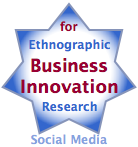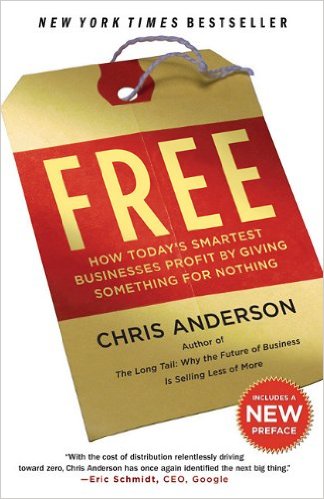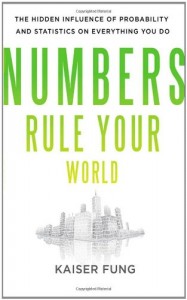
Africa [credit: Mapswire.com]
Africa is a nascent innovation powerhouse, and its leadership will become increasingly obvious during the coming decades, but the seeds are already visible as this post reveals: Africa’s population is exploding, and its young people are adopting tech alternatives to countries’ long-insufficient health, education, and financial infrastructure.
If you’ve been interested in international development for long, you have seen many prognostications about “Africa rising” over the years only to see them fade into oblivion. Predicting profound economic shifts is like predicting earthquakes; you study the driving forces and your algorithms crunch the data.
That isn’t stopping Helga Stegmann. She has led “user experience” agency Mantaray since 2006, and she gave a riveting talk last week in Chicago hosted by partner agency BoldInsight. In my experience, user experience folks rarely have their hands on the pulse of disruptive economic change, but the reason she is an exception reflects that Africa’s economic transformation is happening at the grassroots level (as with most revolutions), and her key orientation is user experience design, so researching users across rapidly evolving interfaces in devices. Follow along with my notes of her remarks […]
 Technologies Enabling the Police State describes the inevitability of pervasive surveillance, how it’s developing, and how we can act now to maintain the maximum degree of freedom. This is Part1 of a series on autonomy in the digital age. Personal and Collective Actions to Maintain Autonomy (Part2) is a how-to post, while Police State Scenarios (Part3) discusses ways that collective permanent loss of autonomy could unfold. Technologies Enabling the Police State describes the inevitability of pervasive surveillance, how it’s developing, and how we can act now to maintain the maximum degree of freedom. This is Part1 of a series on autonomy in the digital age. Personal and Collective Actions to Maintain Autonomy (Part2) is a how-to post, while Police State Scenarios (Part3) discusses ways that collective permanent loss of autonomy could unfold.
Despite their grim titles, these posts are not intended as doomsday writings, and I don’t intend to say that I think a police state is being developed intentionally. My conclusion is rather that the technologies of mass control are developing rapidly, and the risk is significant that some group will seize control of them in the foreseeable future. I think you’ll find some of their points surprising, perhaps even breakthrough. Please let me know in comments!
I did not want to write this post, and I doubt that you want to read it; however, as I explain here, we’re at a pivotal point of human history. We are rapidly losing our […]
 11 Celebration summarizes my reflections on CSRA’s first decade in business, and my vision for our next decade. We’ve been pioneering in experiential social media and social business transformation since I founded the firm in February 2006. 11 Celebration summarizes my reflections on CSRA’s first decade in business, and my vision for our next decade. We’ve been pioneering in experiential social media and social business transformation since I founded the firm in February 2006.
It’s difficult to encapsulate ten years of learnings, but that hasn’t stopped me from trying! This page will reprise some of my favorite posts, and it will feature a series of videos I’ve made in which I explain where we’ve been and where we’re going. This post will change frequently, so please consider it a work in progress.
[…]
 On human experience invites you to examine common marketing practices from a human experience perspective. It expands part of a presentation I gave at the University of Chicago Booth that the audience experienced as mind-bending based on their facial expressions. On human experience invites you to examine common marketing practices from a human experience perspective. It expands part of a presentation I gave at the University of Chicago Booth that the audience experienced as mind-bending based on their facial expressions.
Quite by accident I’ve happened on a rare view of humanity while practicing experiential social media during the last ten years. Experiential’s core research process involves conducting ethnographic research of thousands of people in specific situations. I analyze human behavior in communities in digital public, and it’s very rich, nuanced and complex. Ethnographic yields unparalleled qualitative and quantitative insights into behavior and human experience.
Experiential consistently reveals that many marketing practices repel people rather than attracting them because the environment in which marketing is practiced has completely changed from when these practices developed. Marketing creates mistrust and pushes people away, as I’ll show below. This post attempts to reveal this anachronism to you, so you can correct your practices and take the advantage from your competitors.
[…]
 Behavioral economics autonomy and ethics is a thought experiment on how to approach “doing good” when applying the emerging practice of behavioral economics. Along with big data analytics and cognitive science, behavioral economics affords businesses, governments and other organizations unprecedented impact on individuals’ behavior, even without their consent or awareness. This arouses serious ethical and social dilemmas. Behavioral economics autonomy and ethics is a thought experiment on how to approach “doing good” when applying the emerging practice of behavioral economics. Along with big data analytics and cognitive science, behavioral economics affords businesses, governments and other organizations unprecedented impact on individuals’ behavior, even without their consent or awareness. This arouses serious ethical and social dilemmas.
Every behavioral economics practitioner I’ve met has emphasized the importance of using its practice “for good” in order to help people. Like all other human endeavors, however, “for good” is open to interpretation, so I’ll apply my experience with ethnographic and behavioral analysis of social media to reflect on what “for good” might mean in light of individual and group autonomy.
I also hope this Noodle will be food for thought for executives who hire behavioral economics firms as well as all of us who are invariably its subject. In a similar vein, most designers I know are committed to using design principles to improve user experience, and there’s considerable overlap between design and behavioral economics.
Behavioral economics is […]
 Ethnographic research for business innovation shows how to apply ethnographic research of social media to managing controlled disruption within organizations. Ethnographic research of social media can transform the entire innovation process because it’s a very efficient way to study the behavior and motivations of the people that the innovation proposes to serve. Unlike traditional innovation and ethnographic research methods, which are relatively slow, costly and qualitative, ethnographic research of social media combines qualitative richness with quantitative analysis. It’s faster and less costly, too. Ethnographic research for business innovation shows how to apply ethnographic research of social media to managing controlled disruption within organizations. Ethnographic research of social media can transform the entire innovation process because it’s a very efficient way to study the behavior and motivations of the people that the innovation proposes to serve. Unlike traditional innovation and ethnographic research methods, which are relatively slow, costly and qualitative, ethnographic research of social media combines qualitative richness with quantitative analysis. It’s faster and less costly, too.
Ethnographic research for business innovation can dramatically improve the depth and breadth of business and corporate strategy, business design and service design research since it allows teams to consider more users and to assess their behavior and motivations, which can improve the value of more costly research.
This post outlines the business innovation use case of ethnographic research of social media, and it includes examples in banking, professional services, consumer products, and B2B marketing. For more on ethnographic research, see More Resources below.
[…]
 The connected car and customer experience reveals a new opportunity for carmakers to dial into real customer behavior and desires around connected cars and autonomous cars. The Connected car and the autonomous car are powerful services that will help transform how people move around, and they are emerging during an era of unprecedented volatility in markets. I’ll wager that there’s never been a better or more challenging time to be a carmaker because opportunities and threats have never been higher. I’ve been fortunate to meet product managers and engineers who are pioneering connected and autonomous car services. I’ve also been meeting leaders in the Internet of Things (smart devices), of which the connected car is a part. The connected car and customer experience reveals a new opportunity for carmakers to dial into real customer behavior and desires around connected cars and autonomous cars. The Connected car and the autonomous car are powerful services that will help transform how people move around, and they are emerging during an era of unprecedented volatility in markets. I’ll wager that there’s never been a better or more challenging time to be a carmaker because opportunities and threats have never been higher. I’ve been fortunate to meet product managers and engineers who are pioneering connected and autonomous car services. I’ve also been meeting leaders in the Internet of Things (smart devices), of which the connected car is a part.
My crystal ball says that the connected car is a bet-the-brand proposition for carmakers because it directly addresses competing on customer experience, the most disruptive trend of all. As I detailed in The Social Channel, we have moved from a product/service-based economy toward an experience economy. Even IT analyst Gartner has proclaimed that customer experience is the final battleground for firms. […]
How Free Things Are Disrupting Businesses + Radical Innovation + Guide to Free Business Models
Book Review: Free/Chris Anderson
 Free is an indispensable introduction to the disruption of “a product for a price,” one of the Industrial Economy’s key constructs. It is rich with examples of many of the pricing innovations and business models with which you’re probably familiar but haven’t thought about in depth. Many of its examples have to do with digital products, which are inherently disruptive because their distribution cost is close to zero, and they can displace legacy analog products. Free is an indispensable introduction to the disruption of “a product for a price,” one of the Industrial Economy’s key constructs. It is rich with examples of many of the pricing innovations and business models with which you’re probably familiar but haven’t thought about in depth. Many of its examples have to do with digital products, which are inherently disruptive because their distribution cost is close to zero, and they can displace legacy analog products.
Free is important and useful for two reasons beyond pricing and business model innovation: it contains a good dollop of behavioral economics with regard to pricing, and it gives numerous examples for thinking beyond the two-party market model that dominated the Industrial Economy, buyer and seller. As Anderson repeatedly shows, in digitally networked markets spawned by the Internet, firms put themselves at significant risk when they don’t adopt a networked ecosystem mindset. For example:
When something becomes free, […]
Chief Digital Officer Needs Analysis is an executive summary of how CSRA helps organizations assess their need for “going digital” and hiring digital executives. These engagements serve as “requirements analysis” for an enterprise, business or brand.
Improving the Selection Process for Digital Executives
 Astute CEOs and boards of established firms and brands are awakening to an increasingly uncomfortable reality: for many, business results have been flat, and customers are behaving “unpredictably.” Since this is such a prevalent trend, there is emerging consensus that “going digital” is the way to get closer to customers(1) and revitalize business. CEOs or board members get on the phone to their executive recruiter to search for a Chief Digital Officer, a “digital CMO,” or maybe a digital-savvy CIO to lead digital transformation. As we’ll see, in so doing they are too often putting the cart before the horse. They will get better results by assessing their needs for digital expertise first, so I’ll offer a simple yet robust needs assessment process. Astute CEOs and boards of established firms and brands are awakening to an increasingly uncomfortable reality: for many, business results have been flat, and customers are behaving “unpredictably.” Since this is such a prevalent trend, there is emerging consensus that “going digital” is the way to get closer to customers(1) and revitalize business. CEOs or board members get on the phone to their executive recruiter to search for a Chief Digital Officer, a “digital CMO,” or maybe a digital-savvy CIO to lead digital transformation. As we’ll see, in so doing they are too often putting the cart before the horse. They will get better results by assessing their needs for digital expertise first, so I’ll offer a simple yet robust needs assessment process.
Although CSRA’s client work shows accelerating digital […]
10 Detailed Case Studies + Big Data & Analytics’ New Digital Divide + How to Think Like a Data Scientist Book Review: Numbers Rule Your World/Kaiser Fung
 [UPDATED] Step inside a data scientist’s mind, and learn why probability is the key to profit and how it’s the key to understanding and using big data for better decision making. This fascinating and useful book clearly shows how people misunderstand probability and misuse statistics—and therefore big data—and how the knowledge gap leads to faulty models, thinking and decisions. New winners and losers are emerging in the digital social and big-data age. A new digital divide, people who think like data scientists and use probability to support decision making—and everyone else. The data science group will outperform, and Fung shows how creative, fun and useful data science is. [UPDATED] Step inside a data scientist’s mind, and learn why probability is the key to profit and how it’s the key to understanding and using big data for better decision making. This fascinating and useful book clearly shows how people misunderstand probability and misuse statistics—and therefore big data—and how the knowledge gap leads to faulty models, thinking and decisions. New winners and losers are emerging in the digital social and big-data age. A new digital divide, people who think like data scientists and use probability to support decision making—and everyone else. The data science group will outperform, and Fung shows how creative, fun and useful data science is.
This book is a perfect twin to Duncan Watts’ Everything Is Obvious* Once You Know the Answer, which exposes how common sense pervades management decisions and failure. I shall refer to several specific connections between […]
|
|


 Technologies Enabling the Police State describes the inevitability of pervasive surveillance, how it’s developing, and how we can act now to maintain the maximum degree of freedom. This is Part1 of a series on autonomy in the digital age. Personal and Collective Actions to Maintain Autonomy (Part2) is a how-to post, while Police State Scenarios (Part3) discusses ways that collective permanent loss of autonomy could unfold.
Technologies Enabling the Police State describes the inevitability of pervasive surveillance, how it’s developing, and how we can act now to maintain the maximum degree of freedom. This is Part1 of a series on autonomy in the digital age. Personal and Collective Actions to Maintain Autonomy (Part2) is a how-to post, while Police State Scenarios (Part3) discusses ways that collective permanent loss of autonomy could unfold. 11 Celebration summarizes my reflections on CSRA’s first decade in business, and my vision for our next decade. We’ve been pioneering in experiential social media and social business transformation since I founded the firm in February 2006.
11 Celebration summarizes my reflections on CSRA’s first decade in business, and my vision for our next decade. We’ve been pioneering in experiential social media and social business transformation since I founded the firm in February 2006. On human experience invites you to examine common marketing practices from a human experience perspective. It expands part of a presentation I gave at the University of Chicago Booth that the audience experienced as mind-bending based on their facial expressions.
On human experience invites you to examine common marketing practices from a human experience perspective. It expands part of a presentation I gave at the University of Chicago Booth that the audience experienced as mind-bending based on their facial expressions. Behavioral economics autonomy and ethics is a thought experiment on how to approach “doing good” when applying the emerging practice of behavioral economics. Along with big data analytics and cognitive science, behavioral economics affords businesses, governments and other organizations unprecedented impact on individuals’ behavior, even without their consent or awareness. This arouses serious ethical and social dilemmas.
Behavioral economics autonomy and ethics is a thought experiment on how to approach “doing good” when applying the emerging practice of behavioral economics. Along with big data analytics and cognitive science, behavioral economics affords businesses, governments and other organizations unprecedented impact on individuals’ behavior, even without their consent or awareness. This arouses serious ethical and social dilemmas. Ethnographic research for business innovation shows how to apply ethnographic research of social media to managing controlled disruption within organizations. Ethnographic research of social media can transform the entire innovation process because it’s a very efficient way to study the behavior and motivations of the people that the innovation proposes to serve. Unlike traditional innovation and ethnographic research methods, which are relatively slow, costly and qualitative, ethnographic research of social media combines qualitative richness with quantitative analysis. It’s faster and less costly, too.
Ethnographic research for business innovation shows how to apply ethnographic research of social media to managing controlled disruption within organizations. Ethnographic research of social media can transform the entire innovation process because it’s a very efficient way to study the behavior and motivations of the people that the innovation proposes to serve. Unlike traditional innovation and ethnographic research methods, which are relatively slow, costly and qualitative, ethnographic research of social media combines qualitative richness with quantitative analysis. It’s faster and less costly, too. The connected car and customer experience reveals a new opportunity for carmakers to dial into real customer behavior and desires around connected cars and autonomous cars. The Connected car and the autonomous car are powerful services that will help transform how people move around, and they are emerging during an era of unprecedented volatility in markets. I’ll wager that there’s never been a better or more challenging time to be a carmaker because opportunities and threats have never been higher. I’ve been fortunate to meet product managers and engineers who are pioneering connected and autonomous car services. I’ve also been meeting leaders in the Internet of Things (smart devices), of which the connected car is a part.
The connected car and customer experience reveals a new opportunity for carmakers to dial into real customer behavior and desires around connected cars and autonomous cars. The Connected car and the autonomous car are powerful services that will help transform how people move around, and they are emerging during an era of unprecedented volatility in markets. I’ll wager that there’s never been a better or more challenging time to be a carmaker because opportunities and threats have never been higher. I’ve been fortunate to meet product managers and engineers who are pioneering connected and autonomous car services. I’ve also been meeting leaders in the Internet of Things (smart devices), of which the connected car is a part. Free is an indispensable introduction to the disruption of “a product for a price,” one of the Industrial Economy’s key constructs. It is rich with examples of many of the pricing innovations and business models with which you’re probably familiar but haven’t thought about in depth. Many of its examples have to do with digital products, which are inherently disruptive because their distribution cost is close to zero, and they can displace legacy analog products.
Free is an indispensable introduction to the disruption of “a product for a price,” one of the Industrial Economy’s key constructs. It is rich with examples of many of the pricing innovations and business models with which you’re probably familiar but haven’t thought about in depth. Many of its examples have to do with digital products, which are inherently disruptive because their distribution cost is close to zero, and they can displace legacy analog products. Astute CEOs and boards of established firms and brands are awakening to an increasingly uncomfortable reality: for many, business results have been flat, and customers are behaving “unpredictably.” Since this is such a prevalent trend, there is emerging consensus that “going digital” is the way to get closer to customers(1) and revitalize business. CEOs or board members get on the phone to their executive recruiter to search for a Chief Digital Officer, a “digital CMO,” or maybe a digital-savvy CIO to lead digital transformation. As we’ll see, in so doing they are too often putting the cart before the horse. They will get better results by assessing their needs for digital expertise first, so I’ll offer a simple yet robust needs assessment process.
Astute CEOs and boards of established firms and brands are awakening to an increasingly uncomfortable reality: for many, business results have been flat, and customers are behaving “unpredictably.” Since this is such a prevalent trend, there is emerging consensus that “going digital” is the way to get closer to customers(1) and revitalize business. CEOs or board members get on the phone to their executive recruiter to search for a Chief Digital Officer, a “digital CMO,” or maybe a digital-savvy CIO to lead digital transformation. As we’ll see, in so doing they are too often putting the cart before the horse. They will get better results by assessing their needs for digital expertise first, so I’ll offer a simple yet robust needs assessment process. [UPDATED] Step inside a data scientist’s mind, and learn why probability is the key to profit and how it’s the key to understanding and using big data for better decision making. This fascinating and useful book clearly shows how people misunderstand probability and misuse statistics—and therefore big data—and how the knowledge gap leads to faulty models, thinking and decisions. New winners and losers are emerging in the digital social and big-data age. A new digital divide, people who think like data scientists and use probability to support decision making—and everyone else. The data science group will outperform, and Fung shows how creative, fun and useful data science is.
[UPDATED] Step inside a data scientist’s mind, and learn why probability is the key to profit and how it’s the key to understanding and using big data for better decision making. This fascinating and useful book clearly shows how people misunderstand probability and misuse statistics—and therefore big data—and how the knowledge gap leads to faulty models, thinking and decisions. New winners and losers are emerging in the digital social and big-data age. A new digital divide, people who think like data scientists and use probability to support decision making—and everyone else. The data science group will outperform, and Fung shows how creative, fun and useful data science is.